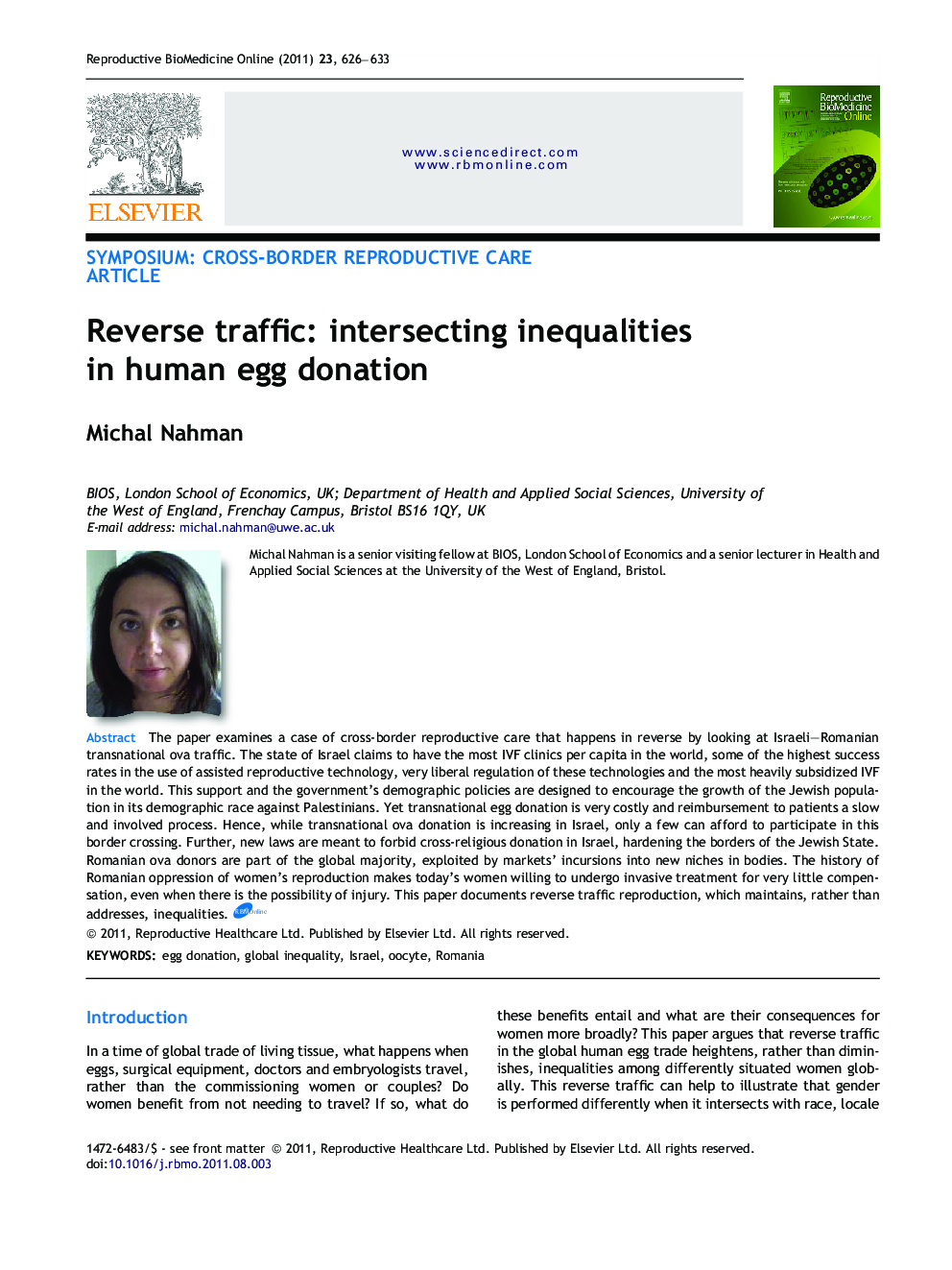| Article ID | Journal | Published Year | Pages | File Type |
|---|---|---|---|---|
| 3971338 | Reproductive BioMedicine Online | 2011 | 8 Pages |
The paper examines a case of cross-border reproductive care that happens in reverse by looking at Israeli–Romanian transnational ova traffic. The state of Israel claims to have the most IVF clinics per capita in the world, some of the highest success rates in the use of assisted reproductive technology, very liberal regulation of these technologies and the most heavily subsidized IVF in the world. This support and the government’s demographic policies are designed to encourage the growth of the Jewish population in its demographic race against Palestinians. Yet transnational egg donation is very costly and reimbursement to patients a slow and involved process. Hence, while transnational ova donation is increasing in Israel, only a few can afford to participate in this border crossing. Further, new laws are meant to forbid cross-religious donation in Israel, hardening the borders of the Jewish State. Romanian ova donors are part of the global majority, exploited by markets’ incursions into new niches in bodies. The history of Romanian oppression of women’s reproduction makes today’s women willing to undergo invasive treatment for very little compensation, even when there is the possibility of injury. This paper documents reverse traffic reproduction, which maintains, rather than addresses, inequalities.The paper examines a case of cross-border reproductive care that happens in reverse by looking at Israeli–Romanian transnational egg donation. The state of Israel claims to have the most IVF clinics per capita in the world, some of the highest success rates in the use of assisted reproductive technology, very liberal regulation of these technologies and the most heavily subsidized IVF in the world. This support and the government’s demographic policies are designed to encourage the growth of the Jewish population in its demographic race against Palestinians. Yet transnational egg donation is very costly and reimbursement to patients a slow and involved process. Hence, while transnational ova donation is increasing in Israel, only a few can afford to participate in this border crossing. Further, new laws are meant to forbid cross-religious donation in Israel, hardening the borders of the Jewish State. Romanian ova donors are part of the global majority, exploited by markets’ incursions into new niches in bodies. The history of Romanian oppression of women’s reproduction makes today’s women willing to undergo invasive treatment for very little compensation, even when there is the possibility of injury. This paper documents reverse traffic reproduction, which maintains, rather than undoes, inequalities.
